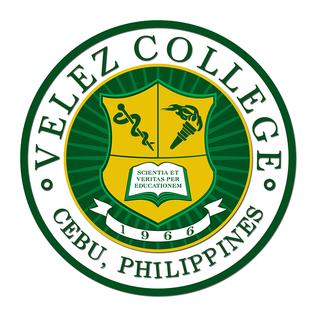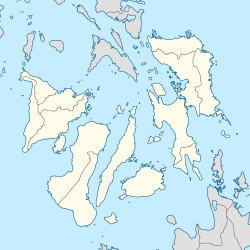
The Dow University of Health Sciences (DUHS) is a public medical university located in the Urban metropolitan area of Karachi, Sindh, Pakistan. It was founded by Sir Hugh Dow, the then Governor of Sindh, in 1945.
The University of Medical Sciences and Technology (UMST) is a co-educational mainly medical oriented college in Khartoum, Sudan. The mission of UMST is to serve the educational needs of Sudanese, African and Arab students. It is located in the Riyad district of Khartoum. It first opened its doors in 1995 with a student body of only forty students and two faculties. In 2017 it had become home to 5,000-6,000 students and costs US$15,000 for the school of medicine in 2018. The university has 14 faculties. In 2014 the University stated that 60% of its students were foreign.

The Universidad de Zamboanga (UZ) is a non-profit, private educational institution established on October 12, 1948. It is Western Mindanao’s largest private educational institution catering to approximately 11,000 students and it provides secondary, tertiary, technical, and graduate programs for young adults and lifelong learners seeking quality education delivered through various learning modalities, including face-to-face, full online, and hybrid learning. It also operates branches in Ipil, Zamboanga Sibugay, and Pagadian City to cater to students in the neighboring provinces.

The Emilio Aguinaldo College is a private university based in Manila, Philippines.

Lyceum-Northwestern University (L-NU) is a medical college located in Dagupan, Philippines, founded by Francisco Quimson Duque and Florencia Tiongson Duque in 1969.

The PHINMA – University of Iloilo is a private, nonsectarian, coeducational institution in Iloilo City, Philippines. It was established in 1947 by the López family of Iloilo who founded the broadcasting giant ABS-CBN Corporation as Iloilo City Colleges. The university was later acquired by the business conglomerate group PHINMA Industries, and its current operations and management is controlled by the said company under its arm, PHINMA Education Network.

Chinese General Hospital Colleges is a medical school located in Manila, Philippines. It was established in 1921 as the Chinese General Hospital School of Nursing (CGHSN). It is owned and managed by the Philippine Chinese Charitable Association (PCCA) Inc. as a non-profit service organization. In 2012 the college began to offer courses such as Bachelor of Science in Medical Technology, BS in psychology, BS in Radiologic Technology and Diploma in Midwifery. In 2017 it opened the College of Medicine, which incorporates Traditional Chinese Medicine in its curriculum.

The Philippine College of Health Sciences, Inc. (PCHS) is a private school located at 1813 Recto Avenue in Manila, Philippines. It was founded in 1993 by Dr. George Cordero.

Manila Central University (MCU), formerly known as the Escuela de Farmacia del Liceo de Manila, is a private, non-sectarian, stock basic and higher education institution located on EDSA, Caloocan, Philippines. It was founded in 1904 by Dr. Alejandro M. Albert, who also was its first director.

The University of La Salette is a private Catholic, coeducational basic and higher education institution founded in 1951 and run by the Missionaries of Our Lady of La Salette in Santiago, Isabela, Philippines.

The Liceo de Cagayan University (LDCU) is a private non-sectarian basic and higher education institution in Cagayan de Oro, Philippines. It was founded in 1955 by Rodolfo N. Pelaez of Cagayan de Oro and his wife Elsa P. Pelaez of Cebu City.

Velez College is a private educational institution in Cebu City, Cebu, widely known for offering allied health degrees. It was founded by Dr. Jacinto Velez Sr. in 1952, who was then chairman of the board of trustees of Cebu (Velez) General Hospital School of Nursing. It was incorporated under the Philippine Corporation Law on March 28, 1966. The institution has four component colleges: College of Arts and Sciences, College of Medical Technology, College of Nursing, and College of Physical Therapy and Occupational Therapy.

Centro Escolar Las Piñas, is a school located in Pilar Village, Almanza Uno, Las Piñas, Metro Manila, Philippines. The school was founded in 1973, when Dr. Faustino Legaspi Uy opened a School of Nursing under the Graduate of Nursing (GN) Program at the Las Piñas General Hospital – that eventually became Dr. Faustino L. Uy Medical Foundation – as the clinical division. Initially created to provide a nursing program, over the years the school has expanded to provide kindergarten, primary and secondary schooling, along with several bachelors programs and a masters program. It was acquired by Centro Escolar University in 2015 and now serves as a satellite campus of the university.

Capitol University is a non-sectarian, co-educational private university located in Cagayan de Oro, Philippines. It is registered with the Securities and Exchange Commission as a stock corporation and operates with the authority of the Department of Education for its primary and secondary programs and the Commission on Higher Education for its tertiary, graduate and postgraduate programs.
Makerere University College of Health Sciences (MakCHS), is one of the 10 colleges that constitute Makerere University, East Africa,s oldest university. The college was established in 2007 by consolidating the training offered by the University in the disciplines of Medicine, Dentistry, Pharmacy, Nursing, Public Health, Optometry, Radiography and other health sciences. The college of Health Sciences consists of 5 schools: School of Medicine, School of Public Health, School of Biomedical Sciences, School of Dentistry and School og Health Sciences. The college provides training in the health sciences at the undergraduate, masters, PhD and post- doctoral levels levels.
The Olivarez College, also known as simply Olivarez or OC, is a private, nonsectarian college along Dr. A. Santos Avenue, Parañaque, Philippines that offers academic programs in basic education, junior and high school, undergraduate, graduate and technical education levels. Founded in 1976, Olivarez College is the only school in Parañaque City that is accredited by the Philippine Accrediting Association of Schools, Colleges and Universities (PAASCU) and the Philippine Association of Colleges and Universities - Commission on Accreditation (PACUCOA). It is a member of the Universities and Colleges Athletic Association (UCAA) and National Capital Region Athletic Association (NCRAA).
Davao Doctors College (DDC) is a private and non-sectarian academic institution in Davao City, Philippines. College was founded in 1975 and supports House of Hopes.
Unciano Colleges (UC), Inc. is a private school with branches in Sta. Mesa, Manila and in Antipolo. The institution is known for its medical science programs and is affiliated the Unciano Colleges and General Hospital in Manila (45years).

The DMC-College Foundation, Inc. (DMC-CFI), also known as DMC De La Salle, supervised by De La Salle Brothers, is a paramedical institution of the province of Zamboanga del Norte. It is situated in suburban Dipolog and occupies 22,500 square meters of land area. Its sprawling expanse contains several buildings which include the DMC Hospital and its laboratories, the four-storey Basic Education and School of Hotel Restaurant and Institution Management Building, the six-room IT Center, the four-storey Nursing Building with the Nursing Arts Center on the fourth floor and on the top floor the campus radio 100.5 Radyo Natin Dipolog and the library which covers the entire ground floor, the Arts and Sciences building with separate structures for a Zoology lab, the cafeteria, and the DMC Covered Court for sports and other activities.

Virgen Milagrosa University Foundation (VMUF) is a privately supported, co-educational, Catholic university in San Carlos, Pangasinan, Philippines. It was founded in 1958 by Dr. Martin Posadas and Dr. Rosalina Q. Posadas.

















